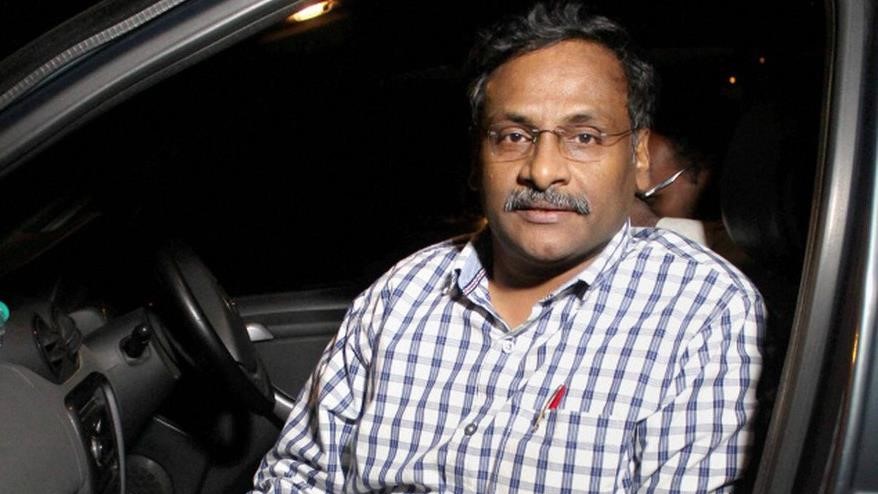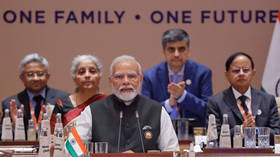NOVANEWS

By Sajjad Shaukat
Waging a prolonged war in Afghanistan, the US and other NATO countries have realized that
after the withdrawal of foreign troops, Afghanistan would be thrown in an era of uncertainly and
civil war. They recognize the fact and terrorism or stability in Pakistan and Afghanistan is
interrelated. Therefore, US-led developed nations which also spent billions of dollars for the
development of Afghanistan have repeatedly agreed that without Islamabad’s help, stability
cannot be achieved there. Unfortunately, India does not intend see peace in that country and is
undermining regional stability by creating unrest in Afghanistan and some other countries, and
by sabotaging their cordial relations.
It is notable that on the direction of Pakistan’s Chief of Army Stafff General Raheel Sharif,
country’s superior intelligence agency, ISI done hard to bring the Afghan Taliban factions to the
negotiating table to conduct talks with the Afghan government. In this regard, Pakistan Foreign
Office said, “A meeting hosted by Pakistan between the Afghan High Peace Council (HPC), the body tasked with opening negotiations and Tehreek-e-Taliban Afghanistan representatives in Murree (On July 8, this year)-an Afghan-owned peace and reconciliation process-the representatives of China and the USA also participated in the meeting. The participants expressed their collective desire to bring peace to Afghanistan and the region-agreed to continue talks through the next meetings.”
India which has been making attempts to foil the dialogue between the Afghan rulers and the
Afghan Taliban is creating an impression that some groups like Haqqani outfit did not take part
in the new talks. While, the US, China and Pakistan are jointly working to facilitate the process
so as to bring peace both in Pakistan and Afghanistan, and the whole region.
In fact, New Delhi is destabilizing the regional countries in general and Afghanistan and
Pakistan in particular. In order to obtain its secret designs, aimed at augmenting Indian
hegemony in the region, India is foiling the peace process between Afghanistan and Pakistan by
managing terrorist attacks like the recent assaults in both the countries.
In this respect, former Chief of Indian secret agency RAW, Amarjit Singh Dulat disclosed on
June 4, this year that Indian intelligence agencies have over the years paid money to militants
and separatists in the Indian occupied-Kashmir and Pakistan.
However, the statement of RAW chief is not surprising, as recently, Indian Defence Minister,
Manohar Parrikar and even its Prime Minister Narendra Modi Modi openly confirmed assistance
to anti-Pakistan elements including separation of East Pakistan.
It is mentionable that Indian former Army Chief Gen. VK Singh also confessed that during his
tenure, he supervised special army unit, Tactical Support Division (TSD) on the instructions of
the then defence minister to sponsor subversive activities in Pakistan, particularly Balochistan.
These blatant admissions clearly prove that New Delhi has been sponsoring worse kinds of
terrorism inside Pakistan by promoting sub-nationalists. New Delhi has been exploiting these
entities locally and abroad as proxies against Pakistan.
Nevertheless, Indian RAW has well-established its network in Afghanistan, and is fully assisting
cross-border incursions and terror-activities in various regions of Pakistan through Baloch
separatist elements and anti-Pakistan groups like Baluchistan Liberation Army (BLA), Jundullah
and Tehreek-e-Taliban Pakistan (TTP) including their affiliated outfits. They also abducted and
killed many Chinese and Iranian nationals. On a number of occasions, these insurgent groups
claimed responsibility for their acts of sabotage.
RAW is making efforts to weaken Afghanistan, Tibetan regions of China and Pakistan,
especially Balochistan by arranging the subversive activities, promoting acrimonious sense of
dissent, political volatility, sectarian violence and arousing sentiments of separatism.
It is notable that New Delhi which has already invested billion of dollars in Afghanistan, also
signed a wide-ranging strategic agreement with that country on October 5, 2011. And, the then
President Hamid Karzai had also signed another agreement with India to obtain Indian arms and
weapons. While, under the cover of these agreements, India has further strengthened its grip in
Afghanistan. By taking advantage of lawlessness in Afghanistan, India is up to its usual tirade to
foment an environment by conducting terrorist attacks in that country to prove that Pakistan is
creating trouble for Afghanistan.
It is worth-mentioning that Gen. Raheel accompanied by the DG of ISI went to Kabul on
December 17, 2014. During his meeting with his Afghan counterpart, President Ashraf Ghani
and the ISAF commander, he presented the evidence of linkage between the massacre of children
at Peshawar school and TTP sanctuaries in Afghanistan. He also asked about action against the
TTP and handing over of its chief Mullah Fazlullah to Pakistan.
In response, Afghan government and US has started taking action against the TTP. A number of
TTP militants have been captured in Afghanistan, while Fazlullah survived in a drone attack.
Meanwhile, Washington has also designated Mullah Fazullah as a global terrorist and seized his
Now, Afghan President Ashraf Ghani realized that Afghanistan and Pakistan are facing similar
challenges of terrorism and will combat this threat collectively. On May 18, 2015, the two
countries signed the security agreement—Pakistan’s ISI and Afghanistan’s National Directorate
of Security (NDS) to share intelligence and conduct coordinated operations against terrorists.
And, frequent visits of Pak-Afghan civil and military leaders to each other’s country also irritate
Nonetheless, Indian desperation in Afghanistan is increasing in the backdrop of growing
engagements of Pakistan, Afghanistan, China and US.
Besides, New Delhi is trying to sabotage the China-Pakistan Economic Corridor (CPEC). Recent
terror-attacks in Pakistan and Balochistan might be noted as example. In this connection, Indian
backed Baloch secessionists have been directed to step up their activities on the CPEC project.
Indian RAW has created a heavily funded China-Pakistan specific desk to target growing Pak-
China-Afghanistan relations.
If India continues its shrewd diplomacy, negative virtues of Afghan political and bureaucratic
circles would not yield any positive effects regarding peace and stability of Afghanistan. Their
efforts to create mistrust between Islamabad and Kabul are condemnable, as it also amounts to
degrade and sabotage the global efforts of achieving peace and stability in the region.
Instead of criticizing the improving relations between Afghanistan and Pakistan, Hamid Karzai
should help in resolving the irritants which he failed to address during his era of presidency.
High profile visits between Islamabad and Kabul would address the issue of cross-border
militancy. They should discuss the failure of Afghan government to hand over of terrorist
Fazlullah to Pakistan and better border management, which are direly needed for stable and
secure environment. A harmonized Pak-Afghan relationship is the guarantee to draw maximum
economic benefits for the future generations, and Pakistan is keen to see return of peace to
Recent Pakistan-Afghanistan rapprochement-initiatives along with evolving Chinese role in
Afghanistan for peace, economic and political developments of Afghanistan are viewed as
positive steps with regional assurance. All the existing ethnic groups of Afghanistan are now
stakeholders in the governance of country.
Afghan Government is also responsible for early repatriation and rehabilitation of Afghan
refugees, languishing in Pakistan. So, this issue must be resolved on priority.
Returning to our earlier discussion, India is weary of growing cooperation among Afghanistan,
China and Pakistan. To hinder this trilateral cooperation, New Delhi is clearly bent upon creating
unfavourable situation through her proxies by targeting China, Pakistan and Afghanistan. And
Pakistan seeks stability in Afghanistan, which is essential for both the countries including China,
Iran, US-led western countries and other regional states. But, India wants instability in
Afghanistan, which favours its clandestine aims. Hence, India is undermining regional stability
by applying secret diplomacy.



